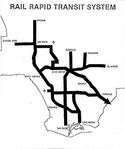Environmentalism is strangely detached from the public's economic goals.
The awful oil spill in the Gulf--as well as the recent coal mine disaster in West Virginia--has added spring to the step of America's hugely influential environmental lobby. After years of hand-wringing over global warming (aka climate change), the greens now have an issue that will play to legitimate public concerns for weeks and months ahead.
This is as it should be. Strong support for environmental regulation--starting particularly under our original "green president," Richard Nixon--has been based on the protection of public health and safety, as well as the preservation of America's wild spaces. read more »




















